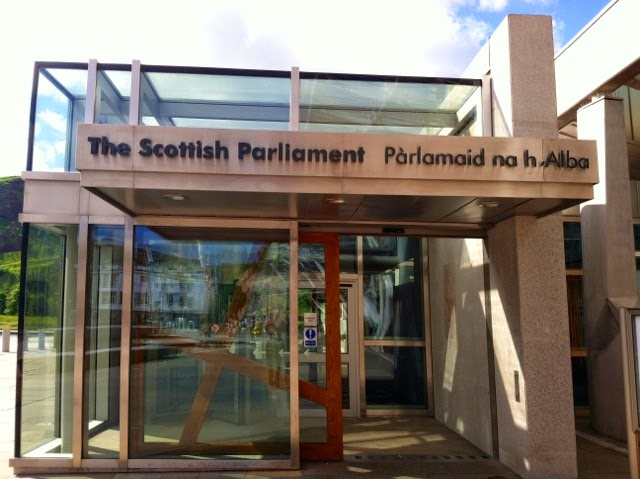Weeks before September 18, 2014, the day that Scotland officially votes yes or no to independence, our own graduate student, Ross Cotton, returned from Edinburgh where he pursued pre-dissertation research on a CES Travel Grant. His dissertation is a comparative analysis of the Scottish National Party and Part Quebecois, two separatist political parties pursuing independence for their nations via peaceful, democratic means. He writes on his investigation of the Scottish Case in Edinburgh below.
The research I conducted in Edinburgh, Scotland this summer has provided me a deep understanding of the forces that have contributed to the current debate over Scottish independence, and in turn, given me the analytic depth to understand the result of the referendum once it occurs on September 18 of this year. I spent the majority of June at the Scottish Parliament interviewing MSPs (Members of Scottish Parliament) from both sides of the independence debate and every political party currently holding seats in the parliament. I interviewed nearly a quarter of the MSPs in Parliament, and learned much from my conversations with them.
The month of July was spent speaking with people from outwith parliament involved in the independence debate. I spoke with members of Yes Scotland (the umbrella organization that is pro-Scottish independence and constituted by the Scottish National Party, the Scottish Green Party, and the Scottish Socialist Party), canvassed with a local Edinburgh chapter, and attended several local events put on by organizers.
Speaking with Better Together (the umbrella organization that is anti-Scottish independence and constituted by the three main Westminster parties, Labour, Conservative, and Liberal Democrat) proved more difficult, as they did not seem to be eager to speak with me.
Nonetheless, the month of July was very exciting and allowed me to view a side of the independence debate that was very different than what I had experienced at the Scottish Parliament; particularly in regards to the vibrant grassroots movement than characterizes Yes Scotland, and the multitude of organizers who are not involved with the Scottish National Party as members or voters, and are campaigning for an independent Scotland for reasons separate to that of the Scottish National Party. Thus, my research this summer was invaluable to my understanding of what is currently taking place in Scotland, and will pay incredible dividends towards my dissertation.



